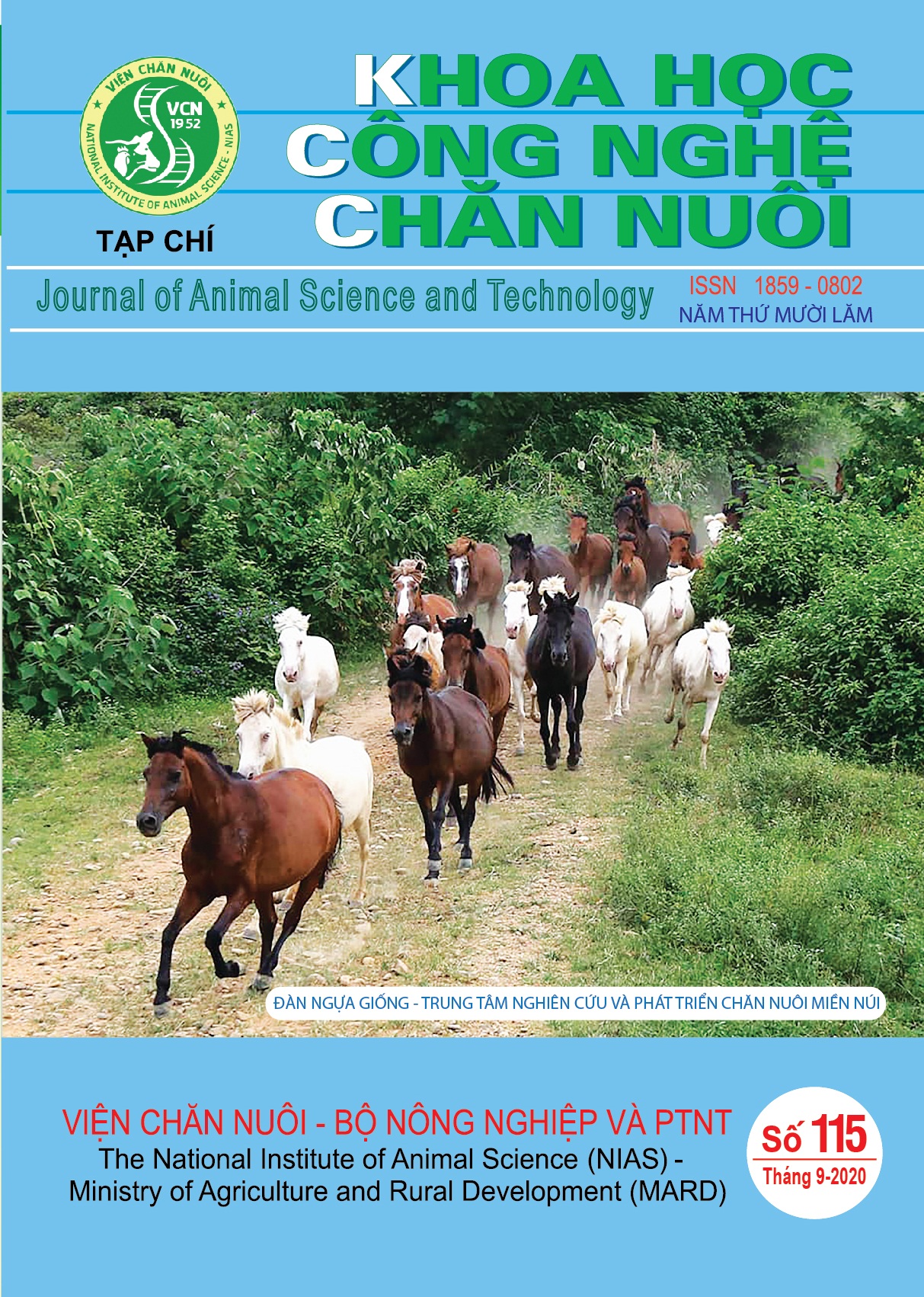Effect of supplementing dietary anergy by ground maize on rumen environment, microbial nitrogen synthesis, growth and estrus of female goat
This experiment was conducted aiming to evaluate the effect of supplementing dietary energy by ground maize for F1 female crossbred goats (Saanen x Bach Thao) on nutrient utilization, rumen microbial nitrogen synthesis, growth and estrus. It included 12 goats at 4 months of age (11.6 kg), were allocated in a complete randomized design with 4 treatments and 3 replicates. The treatments (g ground maize/animal/day) were BN0 (no maize supplementation), BN5 (5g), BN10 (10g) and BN15 (15g) at the beginning of the experiment. Feeds used for diet formulation were Hamill grass, cabbage waste, Spophocarpus scandén and coconut cake meal. The experimental duration was 3 months and a increase of total diet (DM) of 2% for every 2 weeks was applied. The nutrient digestibility trial was implemented at the beginning of the 4th month of the experiment for 7 days.
The results showed that nutrient intake and digestibility, rumen pH and volatile fatty acids concentration, nitrogen retention and daily weight gain were not significantly different (P>0.05) among the treatments. However, the DM intake (g/animal/day) had a trend of gradual increase, when increasing maize from BN5 to BN10 (693 to 719), at the treatment BN15 it was slightly reduced (691). While rumen N-NH3 N-NH3 concentrations at 0 and 3 h after feeding gradually increased for the maize-supplementaion treatments (P<0.05). The microbial nitrogen synthesis was higher (P<0.05) for the maize-supplementation diets and was optimal for the BN10 treatment (4.45 compared to 2.78, 2.99 and 3.39 g/day). There was also an improvement of the first estrus behaviour (P<0.05). In conclusion that no significant effect of dietary maize-supplementation has been found on nutrient intake and digestibility, rumen pH and volatile fatty acids concentration, nitrogen retention and daily weight gain among the treatments, however there were improvements of microbial nitrogen systhesis, the first estrus time and ecomomic return with the optimum benefits for the BN10 treatment.

